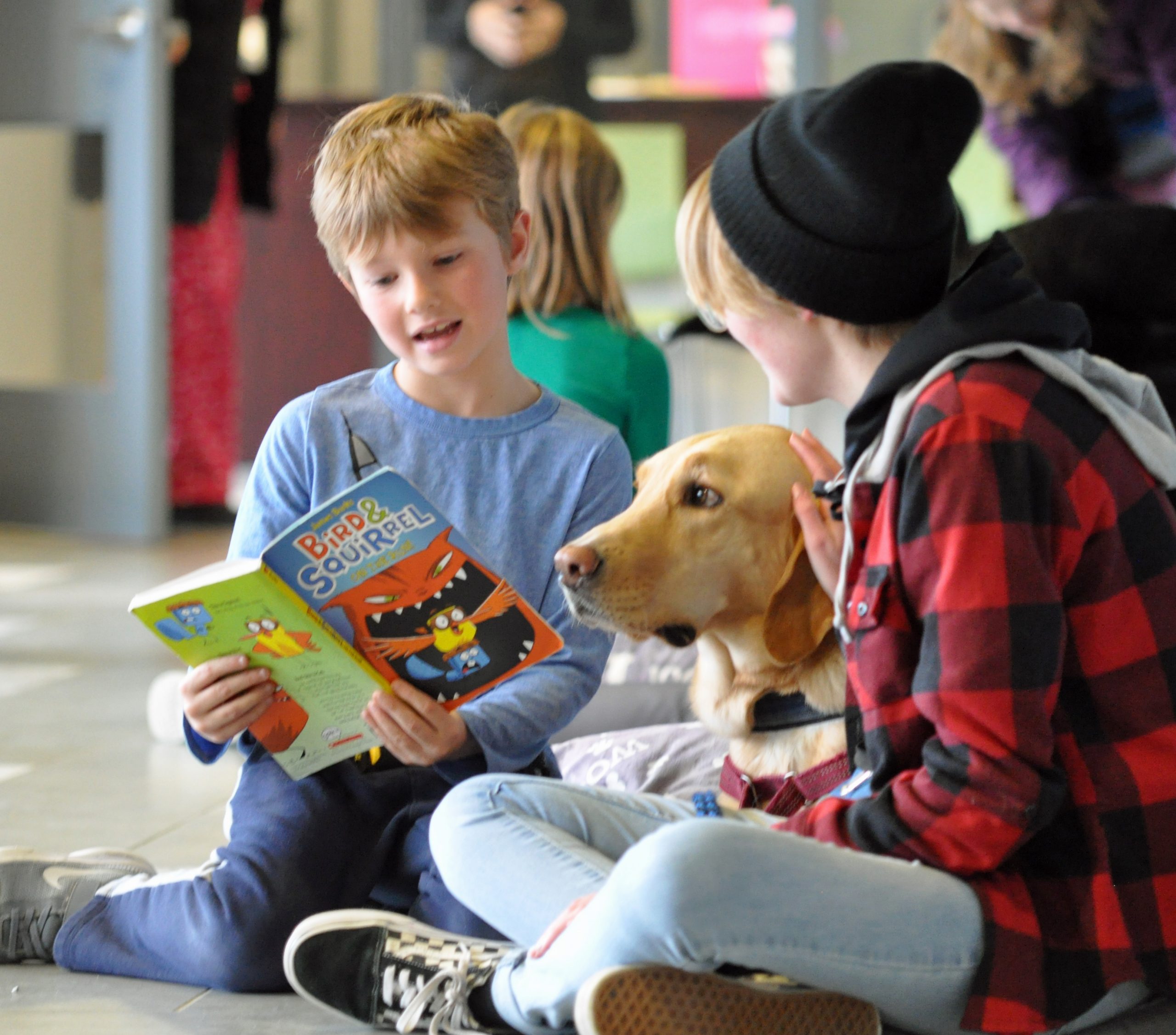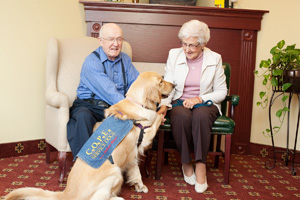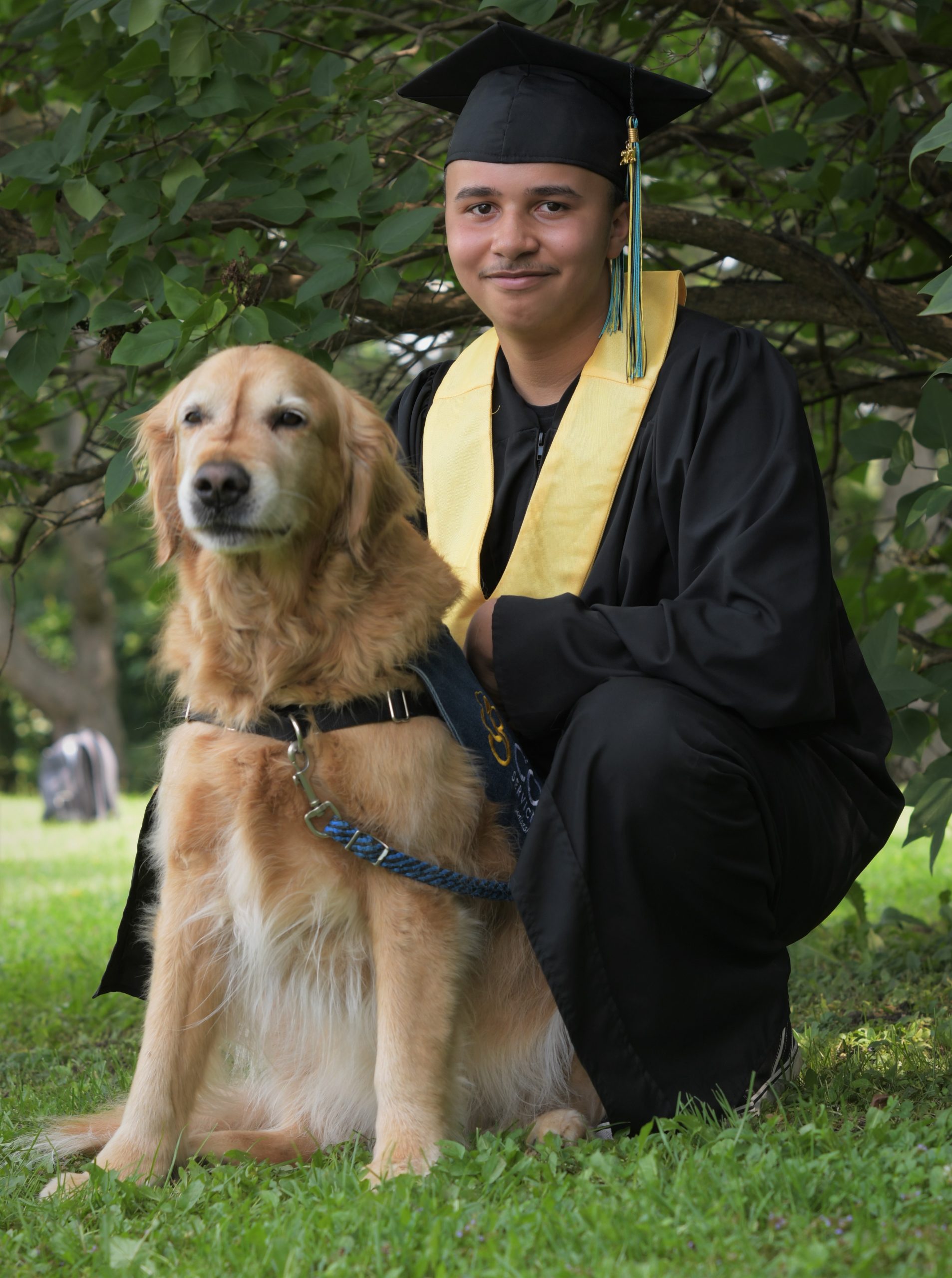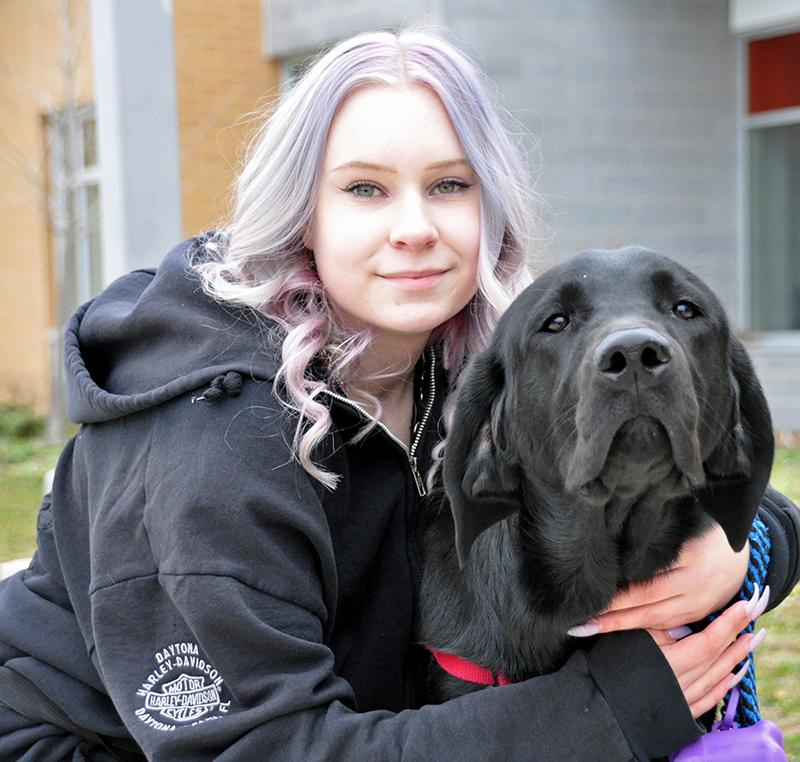CANINES
IN THE
CLASSROOM
Canines in the Classroom gives high school students facing barriers, an opportunity to learn how to train service dogs. The program, which takes place during the school day, is linked to the Ontario secondary school curriculum. Students can earn high school credits while learning essential literacy and workplace skills.
Sit. Stay. Graduate.
Students introduce their canine partners to as many as 90 commands. “Sit” and “Stay” aside, the students also teach the dogs self-restraint and perseverance so they can learn to open doors, turn on lights, retrieve items and help with dressing – tasks that a person using a wheelchair, for example, might have difficulty doing on their own.
At the same time, students learn skills to enhance their own lives. In fact, research shows that after participation in Canines in the Classroom, student grades and learning skills improve and suspensions decrease. Students have a sense of purpose, helping them stay in school until graduation.
We’re getting bigger!
Since 2001, over 1000 students in Simcoe County have participated in Canines in the Classroom and we’re ready to spread the goodness. COPE has started a 3-year pilot project in Mississauga (West Credit Secondary School and Meadowvale Secondary School) that will establish a sustainable model that can be reproduced in any community. This means more mentally healthy students who graduate high school and more skilled dogs helping the community. Canines in the Classroom also just expanded into two new Barrie schools, Bear Creek Secondary School and Barrie North Collegiate.
Get a glimpse of CIC in this 1-minute, student-made video.
Watch CIC and Reading Buddy in action here.

READING BUDDY
COPE Dogs are the best listeners!
Canines in the Classroom student/dog teams travel to elementary schools to help motivate young students to read.
The child experiences spending time with someone who encourages reading and is not critical. After all, a dog won’t criticize you if you read too slowly, or you are reading books meant for younger students.
Impact on young children
By reading to a COPE dog, young students who wouldn’t necessarily be comfortable in reading a single sentence in front of other students or teachers, gain confidence while they practice and build literacy skills in a non-judgmental environment.



